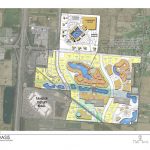1031 Deadline Extensions – Federally Declared Natural Disaster.
I received an email from Steve Rosansky at Peak Exchange regarding possible 1031 extensions in the event of a natural disaster such as what has occurred in the West Valley of Los Angeles and Malibu and thought this would be an excellent relevant topic right now.
1031 rules are very strict with very few exceptions, but this is one of them. While the 1031 exchange rules must be strictly followed, there may be some extensions available if you’ve been affected by fires in California or Hurricanes in the Florid and South East.
To be eligible it must be a federally declared natural disaster, terrorist act or military action. If there are qualifying events the IRS will post a notice with guidance on the IRS website under ‘Disaster Relief’. Under Rev. Proc. 2007-56, extensions of the 45-day identification period and 180-day exchange deadlines may be provided to eligible investors.
Rules get involved, but for eligibility for an extension, you must meet both:
- The terms of the specific Notice issued for the disaster relief for which you believe you may qualify,
- Plus, the terms of Rev. Proc. 2007-56.
- Rev. Proc. 2007-56 will extend the deadlines by the later of
- 120 days; OR
- the date listed in the IRS Notice
- the extension may not go beyond the due date for filing the tax return for the year of the transfer (§17.02(1)).
Rev. Proc. 2007-56 applies to an Exchanger:
- If in a forward exchange, the Exchanger has sold the first Relinquished Property, OR in a reverse exchange, the EAT has taken title to property on or before the date of the Federally declared disaster (§17.02(2)(a)); AND
- there is a subsequent Notice or other guidance published by the IRS (FEMA notices and Presidential Declarations don’t have any effect unless the IRS has also issued guidance) granting extensions pursuant to the Rev. Proc. (§17.01); AND
- the Exchanger is an “affected person” as defined in the IRS Notice (§17.02(2)(b)(i))-Usually defined as having the primary residence or principal place of business in the disaster zone OR the Exchanger has difficulty meeting the 45-day and 180-day deadlines because of the disaster, for the any of the following or similar reasons:
- The Relinquished Property or the Replacement Property is located in the disaster zone (§17.02(2)(b)(ii)(A));
- The principal place of business of any party to the transaction is located in the disaster zone (§17.02(2)(b)(ii)(B));
- A party to the transaction is killed, injured or missing due to the disaster (§17.02(2)(b)(ii)(C));
- A necessary document relevant to the exchange or relevant land record is destroyed, damaged or lost due to the disaster (§17.02(2)(b)(ii)(D));
- A lender won’t fund because of the disaster (§17.02(2)(b)(ii)(E)); OR
- A Title insurance policy cannot be issued due to the disaster (§17.02(2)(b)(ii)(F))
- Only the deadlines that fall on or after the date of the Federally declared disaster will be extended.
-
- Generally, if the identification period has not expired by the date of the disaster, then the extensions may apply to both the 45-day identification period AND the 180-day exchange period. (§17.02(1))
- If the identification period has expired by the date of the disaster, then only the exchange period deadline will be extended. (§17.02(1)) UNLESS
- the disaster occurred after the 45th day AND the identified property was substantially damaged, THEN you may be able to retroactively extend the identification period and also extend the exchange period. (§17.03)
As always, consult with your tax professional. I am not a tax attorney or a CPA, but I can help you find that (near) perfect 1031 replacement property. Call me, Scott Harris Realtor, at 310-473-4789 or 614-905-6614.



 Follow
Follow


